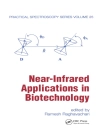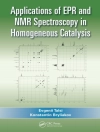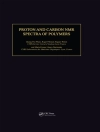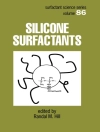BIOMIMICRY MATERIALS AND APPLICATIONS
Since the concept of biomimetics was first developed in 1950, the practical applications of biomimetic materials have created a revolution from biotechnology to medicine and most industrial domains, and are the future of commercial work in nearly all fields.
Biomimetic materials are basically synthetic materials or man-made materials which can mimic or copy the properties of natural materials. Scientists have created a revolution by mimicking natural polymers through semi-synthetic or fully synthetic methods. There are different methods to mimic a material, such as copying form and shape, copying the process, and finally mimicking at an ecosystem level.
This book comprises a detailed description of the materials used to synthesize and form biomimetic materials. It describes the materials in a way that will be far more convenient and easier to understand. The editors have compiled the book so that it can be used in all areas of research, and it shows the properties, preparations, and applications of biomimetic materials currently being used.
Readers of this volume will find that:
* It introduces the synthesis and formation of biomimetic materials;
* Provides a thorough overview of many industrial applications, such as textiles, management of plant disease detection, and various applications of electroactive polymers;
* Presents ideas on sustainability and how biomimicry fits within that arena;
* Deliberates the importance of biomimicry in novel materials.
Audience
This is a useful guide for engineers, researchers, and students who work on the synthesis, properties, and applications of existing biomimetic materials in academia and industrial settings.
Про автора
Inamuddin, Ph D, is an assistant professor in the Department of Applied Chemistry, Aligarh Muslim University, Aligarh, India. He has extensive research experience in analytical chemistry, materials chemistry, electrochemistry, renewable energy, and environmental science. He has worked on different research projects funded by various government agencies and universities and is the recipient of multiple awards, including the Fast Track Young Scientist Award and the Young Researcher of the Year Award for 2020, from Aligarh Muslim University. He has published almost 200 research articles in various international scientific journals, 19 book chapters, and 145 edited books with multiple well-known publishers, including Scrivener Publishing.
Tariq Altalhi, Ph D, is Head of the Department of Chemistry and Vice Dean of Science College at Taif University, Saudi Arabia. He received his Ph D from the University of Adelaide, Australia in 2014. His research interests include developing advanced chemistry-based solutions for solid and liquid municipal waste management, converting plastic bags to carbon nanotubes, and fly ash to efficient adsorbent material. He also researches natural extracts and their application in the generation of value-added products such as nanomaterials.
Ashjan Alrogi, MD, graduated with MBBS degree from Um Al Qura University, Saudi Arabia in 2007 then joined Saudi board of internal medicine for 4 years followed by 2 years Saudi fellowship for adult endocrine and metabolism. She is working as a consultant of internal medicine and adult endocrinology at Hera General Hospital, Makkah, Saudi Arabia.












